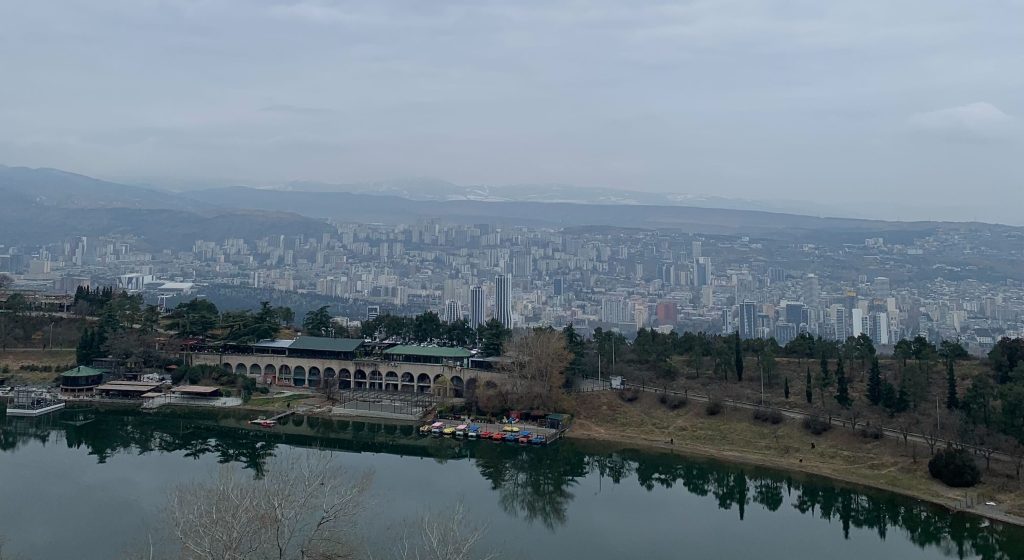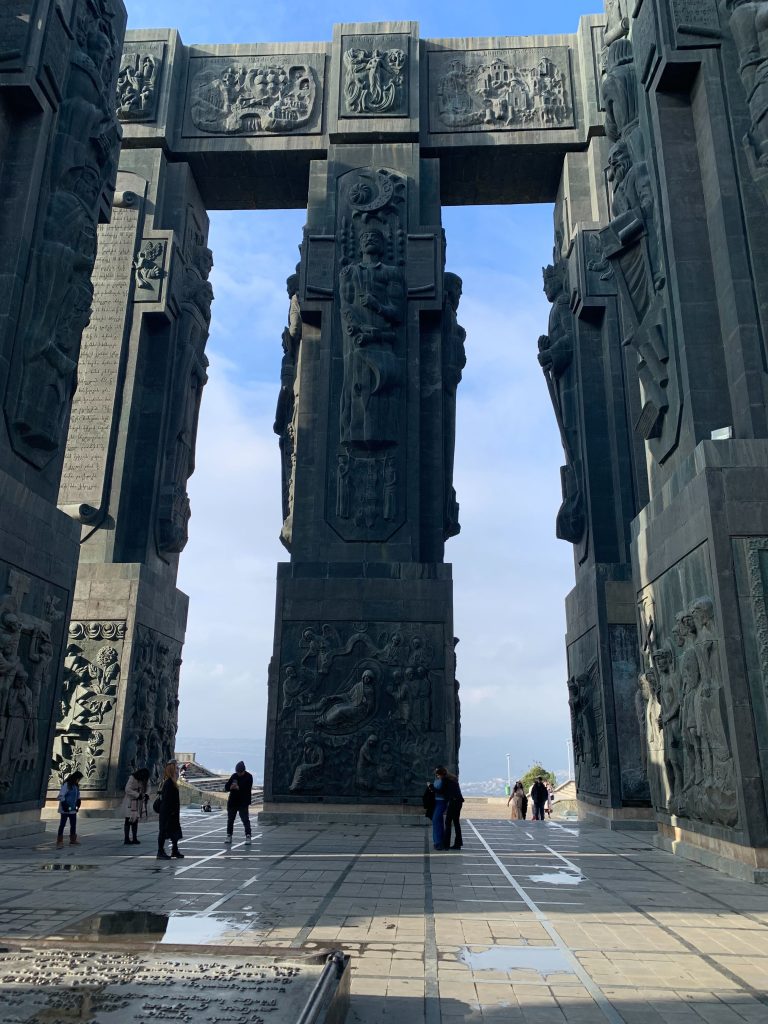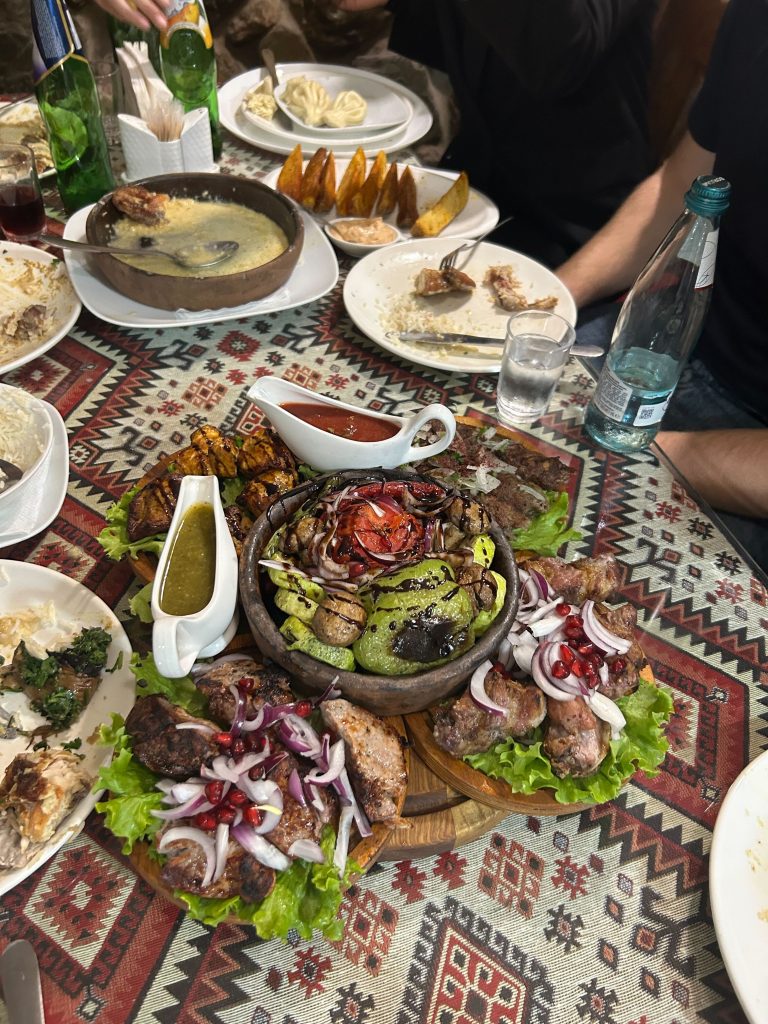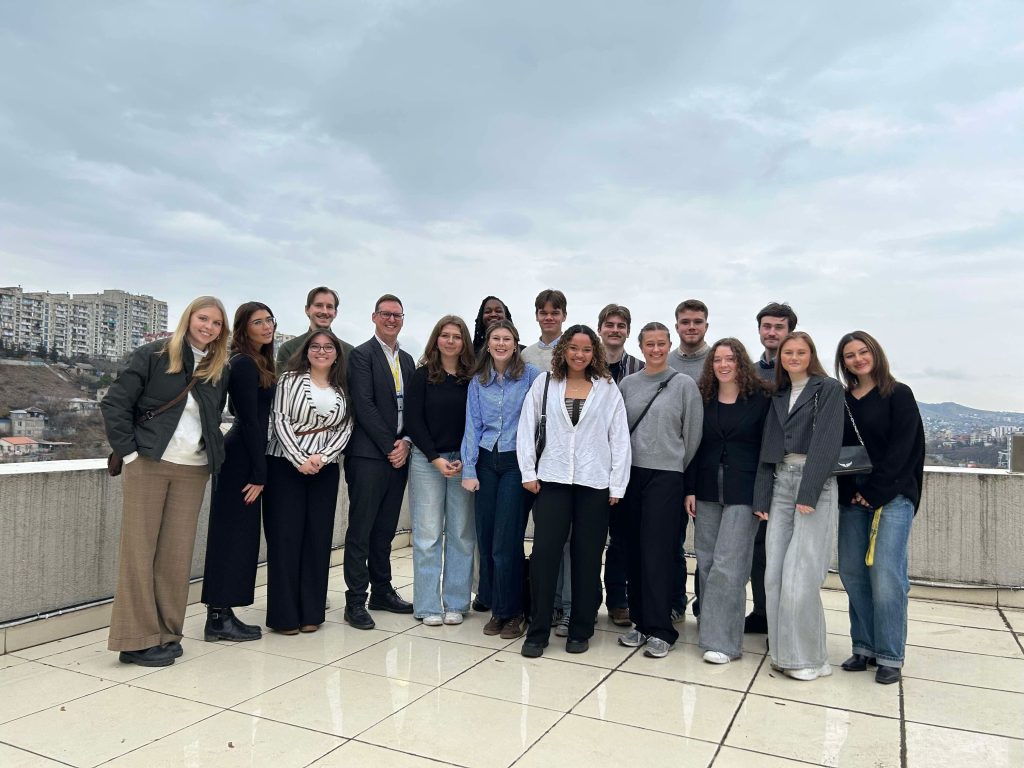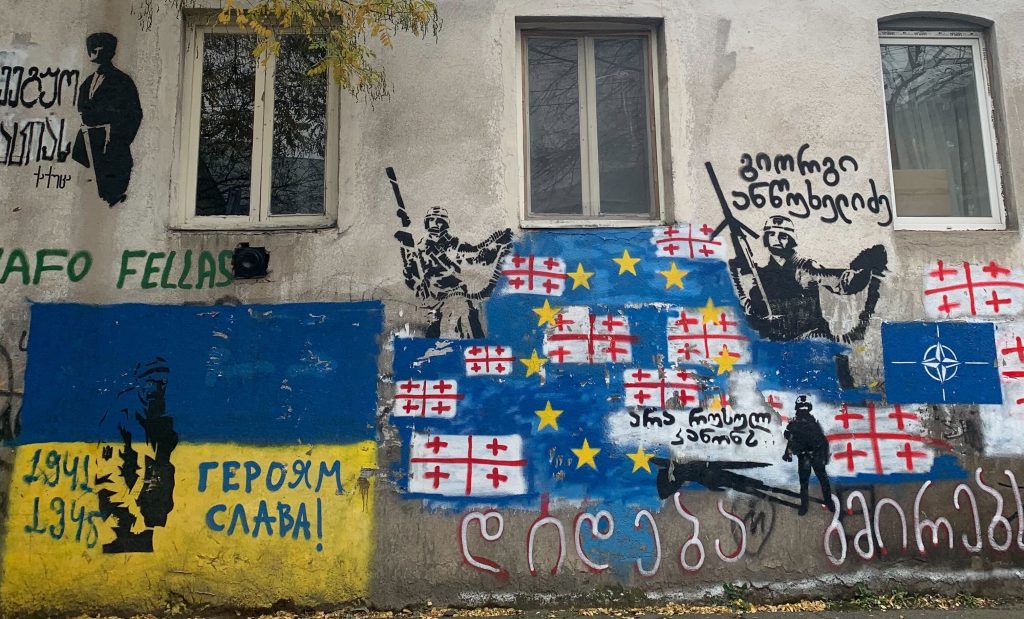
The sun had already set, and the crisp air of late November swept over us as we gathered at Uppsala Central Station. The excitement was palpable among the group, all of us eager for what lay ahead: a week-long adventure in Georgia, a country tucked between Europe and Asia, rich in history, culture, and stunning landscapes.
The bus ride from Uppsala to Arlanda Airport was filled with conversations and though we all shared a keen interest in Georgia, our expectations varied widely. Some of us were already well-versed in the country’s rich history and complex political landscape, while others were mostly drawn to its famed landscapes and natural beauty. Regardless of our background, we were united by a shared sense of curiosity and adventure. After a quick check-in and a light dinner, we boarded the flight to Warsaw.
As we prepared to take off from Warsaw to Georgia our phones buzzed in unison. News alerts flooded our screens: Georgia’s ruling party had just announced the suspension of the country’s EU application. The decision, which had come right after the recent elections, had sparked widespread protests. Our group exchanged uneasy glances.
Our accommodation was a three-story villa in Varketili, a quieter neighborhood located at the end station on the city’s metro line. Given the fiery protests in the center of the town, staying a little further out made us feel safer.
On our first day, we set out to explore Tbilisi. The city offered a fascinating mix of Soviet-era architecture alongside newly renovated, modern areas. Orthodox Christian influence was evident throughout the city, with beautiful churches on nearly every corner. Some of us took the opportunity to step inside these churches.
That evening, we gathered for a traditional Georgian dinner, sharing a variety of dishes family-style. From khachapuri (cheese-filled bread) to khinkali (dumplings) and hearty stews, the food was an absolute highlight. Georgian cuisine did not disappoint, and we all agreed that it was one of the best
parts of the trip.
Throughout the week, we explored more of Tbilisi and beyond. We hiked to Chronicles of Georgia, a grand monument located on a hill overlooking the city. The views were breathtaking, and the sheer scale of the monument left a lasting impression. We also visited Turtle Lake, a peaceful spot surrounded by nature, where we relaxed and enjoyed the calm scenery. One of the most memorable days was spent hiking in the mountains. As we stood on the edge of a cliff, overlooking the vast valley below, it was impossible not to be struck by the raw beauty of the land.
Some evenings, we stayed in the villa, cooking meals together and sharing stories over dinner. There were also plenty of evenings when we went out to enjoy dinner at local restaurants. Prices in Tbilisi were incredibly affordable, so we indulged in generous portions and diverse dishes.
One of the most insightful experiences was our visit to the Swedish Embassy. There, we met with staff who explained the current situation in Georgia, providing context on the political unrest and the country’s evolving relationship with the EU. We also met with several local NGOs; firstly Volunteers Tbilisi, an organization that supports refugees, particularly from Ukraine. It was inspiring to hear about their work and the challenges they face, especially given the increased demand for assistance due to the ongoing conflict in Ukraine. Furtheron, we met the Equality Movement, an organization that promotes LGBT+ rights in Georgia. We were lucky to be invited to their annual conference, on the theme of HIV/AIDS prevention and the Family Values law (so-called anti-LGBT law) that came into effect that same day. The last NGO we met was the Europe-Georgia institute, a think-tank that promotes relations between Georgia and the European Union. They certainly had many interesting insights to share about the current political situation. We are deeply grateful for all of the meetings we were able to have and they provided us with great insight about the country.
However, the political situation remained in the background, casting a shadow over our experiences. We saw glimpses of the protests on the streets and heard stories of people’s frustration with the government. It was clear that many Georgians felt a deep sense of betrayal, especially given their long-standing aspirations for closer ties with Europe.
As we boarded our flight back home on December 5th, there was a bittersweet feeling among the travelers. Georgia had captured our hearts, and we had only begun to scratch the surface of its wonders. The country had welcomed us with open arms, and we left with a deeper understanding of its people, culture, and landscapes.
